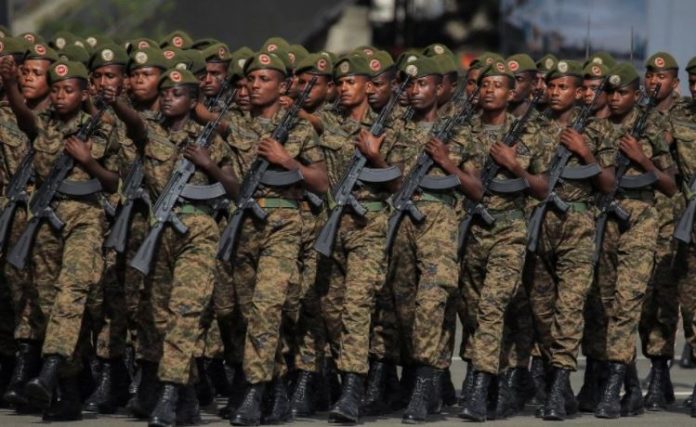The Biden administration must reaffirm that the United States recognizes the immutability of Somaliland’s (and Somalia’s) recognized borders. It is time to put diplomacy first.
The Ethiopian capital of Addis Ababa is quiet. Whereas a month ago, the Ethiopian Army appeared to be on the brink of defeat, an Iranian, Turkish, and Emirati airlift of drones and ammunition tipped momentum in favor of Prime Minister Abiy Ahmed. But it will be a Pyrrhic victory for the disgraced Nobel Laureate: Widespread reprisals and collective punishment have frayed Ethiopia’s ethnic fiber beyond repair in not only Tigray and Oromia but also among Ethiopia’s other ethnic-based federal states. Simply put, dictators who create concentration camps for ethnic reprisal seldom can claim public adulation.
To maintain power, Abiy must keep Ethiopia in a state of perpetual crisis. Enemies real and imagined will dominate public rhetoric. But the Tigray War highlighted another vulnerability: Ethiopia’s lack of a port. Eritrea’s independence—and its success in a subsequent war with Ethiopia—ended Ethiopia’s outlet to the sea, and so Ethiopia turned to Djibouti, the independent city-state and port. Chinese investment underwrote a railroad and highway project, and today Djibouti handles up to 95 percent of all of Ethiopia’s inbound trade. As fighting expanded beyond Tigray, however, forces disrupted both rail and road links between Addis Ababa and Djibouti.
To correct this and distract his population with a new crisis, Abiy is setting the stage for a claim to Zeyla (Saylac), a sleepy port in northern Somaliland just about seventeen miles from the Djiboutian border. His supporters have begun to cite historic precedent: from the sixteenth to early nineteenth century, Zeyla was the main port serving the Ethiopian city of Harrar and points even further inland. Zeyla is also a focal point of Abiy’s on-again, off-again discussion of creating a new Ethiopian Navy, a military service that makes no sense in an otherwise landlocked country.
While Ethiopia is a continental giant—after Nigeria, it has the largest population in Africa—Somaliland is far smaller in both size and population. Zeyla itself is relatively isolated: The two nearest Somaliland cities—Boroma and Berbera—are 150 and 170 miles, respectively, away over rough terrain. It would take hours, if not days, for Somaliland to muster its forces to repel an Ethiopian invasion. While Ethiopian forces would also face rough and barren terrain, they would only need to drive 160 miles to reach Zeyla.
As important as geopolitical factors are alliances. While Abiy, angered at persistent human rights criticisms, has now turned his back on the United States and Europe in favor of autocratic backers like China, Turkey, Eritrea, and Iran, Somaliland has gone the other direction. The United Kingdom, Denmark, and Kenya all have offices in the Somaliland capital Hargeisa, and the European Union is also a frequent presence. Rather than accept bribes from Beijing as many African countries have, Somaliland chose Taiwan because of shared values. Shortly after, the Chinese foreign ministry sent a delegation in order to trade bribes for a policy change, but Somaliland’s elected leadership sent them packing. China is also upset with Somaliland for commercial reasons: The newly-expanded port of Berbera increasingly competes with Djibouti. The United Arab Emirates’ “corridor” road from the port, which travels past a new UAE-funded airport to the Ethiopian border, makes Berbera more attractive. Abiy may calculate that if he makes a move on Zeyla, he will enjoy China’s backing, if not to punish Taiwan than to prop up China’s own investment in Djibouti.
As he often does, Abiy confuses reality with wishful thinking. Djibouti is no stranger to ethnic tensions between Somalis, who rule the country, and Afars. To move on Somaliland would exacerbate those tensions, as Djiboutian Somalis have kin in Somaliland while many Afars have kin in Ethiopia. Any Ethiopian assault on Zeyla would likely reignite insurgency and destabilize Djibouti.
































